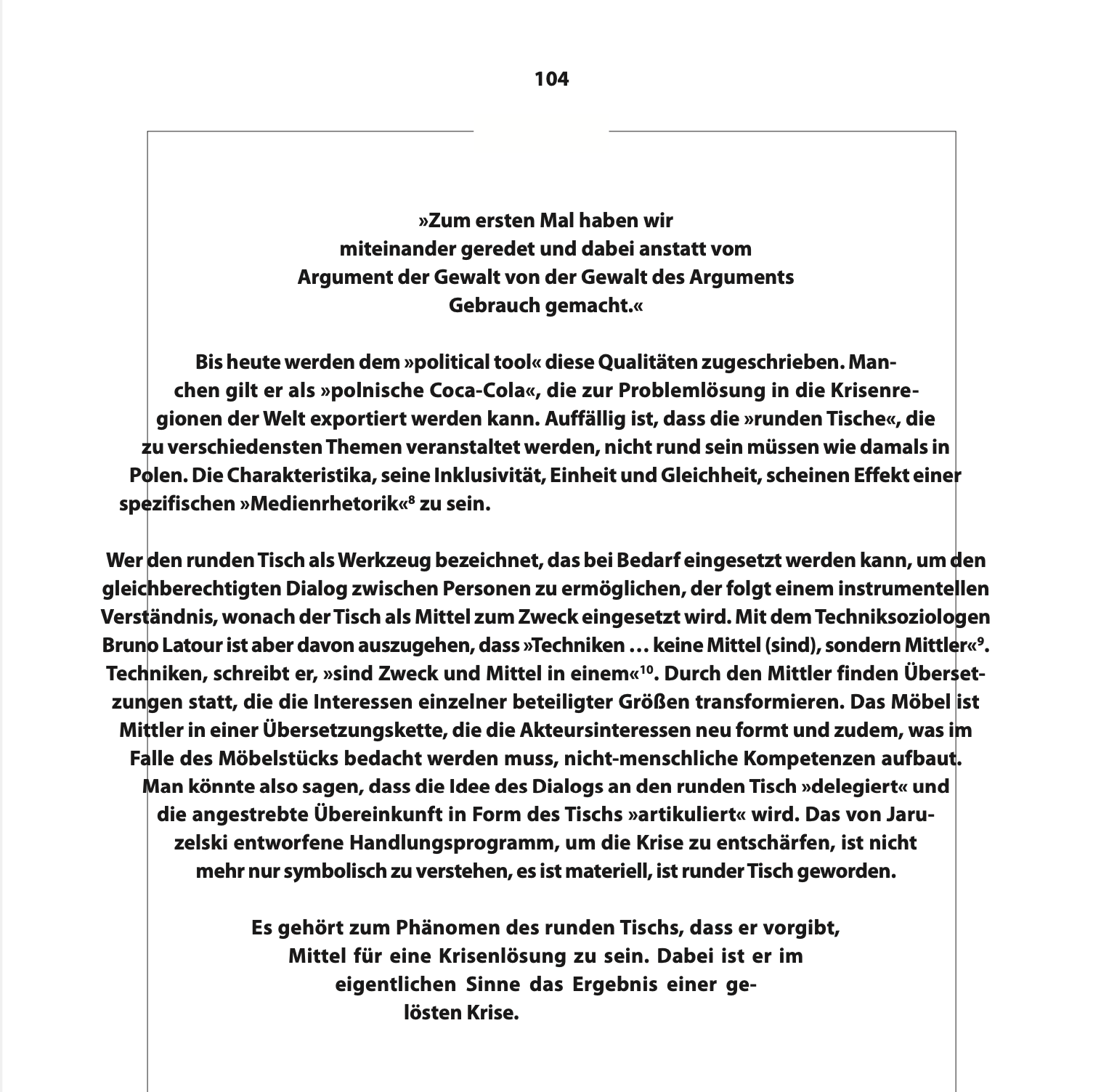
"Der wundertätige Tisch"
In his text "Der wundertätige Tisch", media scholar Philipp Goll describes the Polish Round Table not so much as a tool of political action, but as its medium, or even, a political actor in its own right:
Excerpt from: "Der wundertätige Tisch" [The Miraculous Table]
“The definition of the Round Table as a tool that can be implemented at will to create an even playing field between different parties relies on an instrumental understanding in which the table is used a means to an end. Sociologist Bruno Latour, however, posits that “techniques [are] not… means but mediators”. Techniques are “means and ends at the same time”, he writes. Mediators facilitate translations that transform the interests of individual powers. The piece of furniture is a mediator in a chain of translation that reshapes the interests of the actors involved while also developing non-human competencies, which must be taken into account with regards to the piece of furniture. It could thus be argued that the idea of the dialogue “delegates” to the Round Table and that the agreement being pursued is “articulated” in the form of the table. Jaruzelski’s programme for defusing a crisis is no longer merely symbolic. It has become matter in the shape of a Round Table. It is the Round Table’ nature to purport to be a means for solving a crisis. When in fact, here it is the result of a crisis that has already been solved.”
Published in: Kultur & Gespenster, Nr. 16 (2015)
Excerpt translated for this project by Moira Barrett.